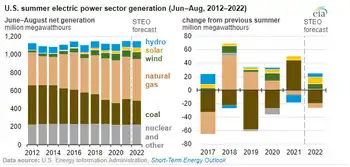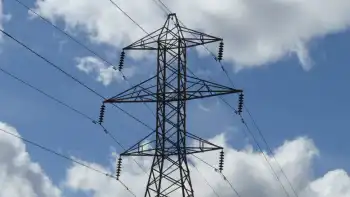Should coal be considered a clean fuel?
By Tampa Tribune
Substation Relay Protection Training
Our customized live online or in‑person group training can be delivered to your staff at your location.

- Live Online
- 12 hours Instructor-led
- Group Training Available
According to a staff recommendation from the Florida Public Service Commission, the state should adopt a "clean" standard for generating electricity, not just a "renewable" standard.
If the Legislature agrees, the change would allow utilities to use nuclear power and new coal-burning technology to meet whatever "green'' standard state lawmakers approve.
Commission staff is recommending the state require utilities produce 20 percent of their power from renewable or clean energy sources by 2041. Gov. Charlie Crist would prefer the state get to 20 percent by 2020.
Including nuclear power would make it easier for Progress Energy Florida and Florida Power & Light, the state's largest producers of nuclear power, to meet those deadlines.
Already, nuclear power accounts for 18 percent of the electricity produced by Progress Energy. FPL produces about 19 percent of it s power from nuclear plants.
Both utilities have been lobbying regulators for a standard that would include nuclear power.
"We do not oppose either nuclear or energy efficiency as part of a renewable portfolio standard as both are consistent with renewable energy targets and timelines that are realistic, achievable, supported by empirical studies, and cost effective," Progress Energy spokeswoman Suzanne Grant said in an e-mail response to questions from the Tribune.
In papers filed with the commission, the Florida Solar Coalition said it opposes the staff's recommendation to establish a standard that includes nuclear power.
Such a standard "would eliminate the need for FPL or Progress Energy from being required to add any new renewables to meet a 20 percent by 2020 goal," the coalition wrote. "The staff's proposal is strongly skewed in favor of the investor-owned utilities."
The commission will consider the staff's recommendations at an upcoming hearing. The commission must submit its recommendations to the Legislature by the end of this month.
The Legislature will determine the standard and whether nuclear- and- coal-fired power should be included.











